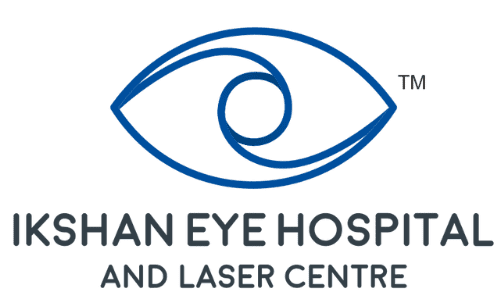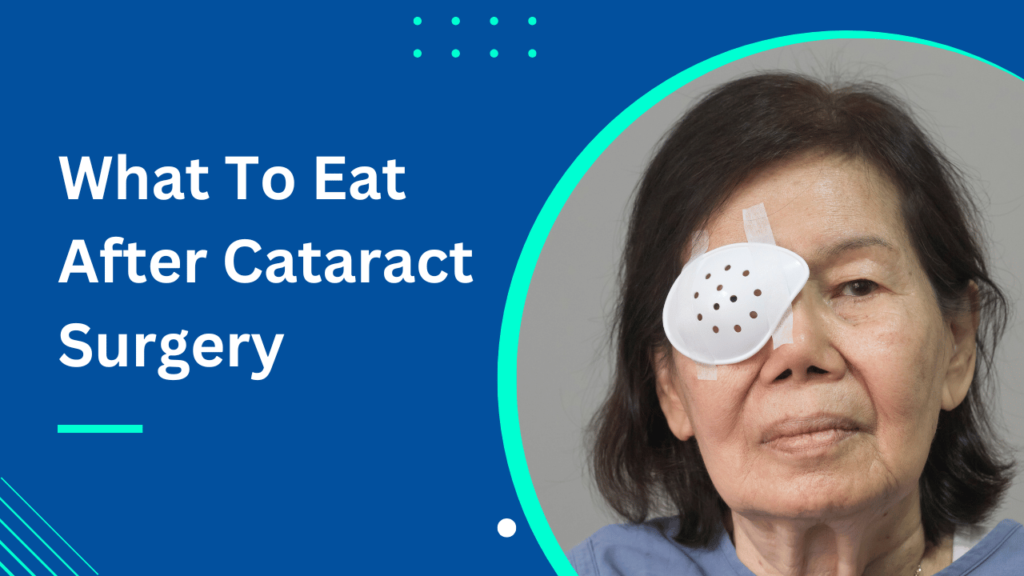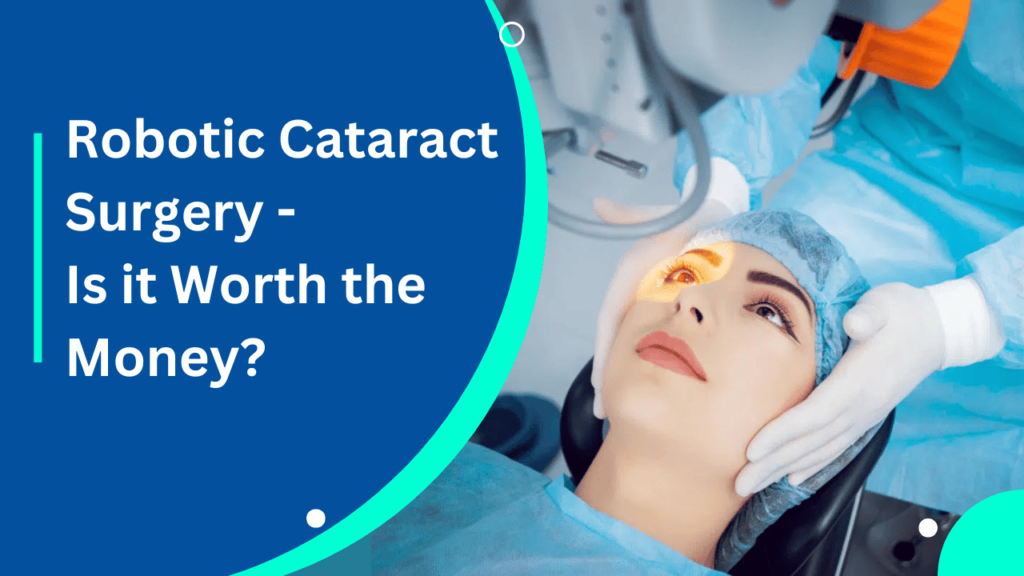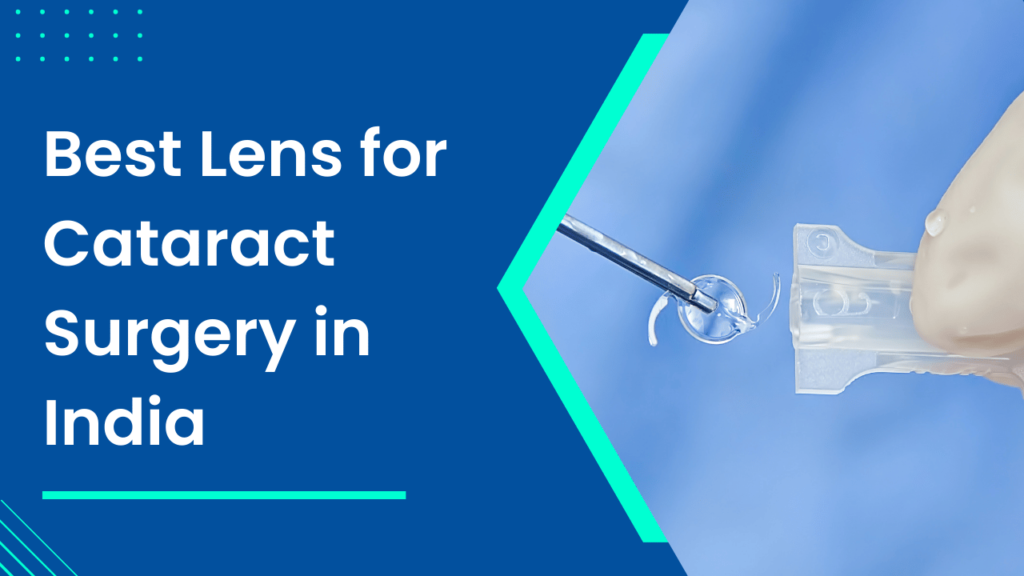Recovering from cataract surgery can feel overwhelming, especially when you’re unsure about the steps you need to take for a speedy recovery.
One of the most common yet overlooked aspects is understanding what to eat after cataract surgery.
Diet plays a crucial role in reducing inflammation, supporting healing, and ensuring your eyes stay healthy post-procedure.
Did you know that 60% of patients report faster recovery when they follow a nutrient-rich diet tailored for eye health?
I remember when my mother underwent cataract surgery last year; we were surprised to learn how much her meals impacted her recovery.
By incorporating foods rich in vitamins A and C, omega-3 fatty acids, and antioxidants, her healing process was smooth and uneventful.
It was an eye-opener to see how small changes in her diet made such a significant difference.
In this article, we’ll explore the best foods to eat, what to avoid, and how to create a balanced post-surgery meal plan.
Let’s dive in to help you or your loved ones recover faster and healthier!
Why Diet Matters After Cataract Surgery

Diet plays a crucial role in speeding up recovery after cataract surgery. Nutrients like vitamin C, omega-3 fatty acids, and zinc help reduce inflammation, promote healing, and protect your eyes.
Antioxidant-rich foods like leafy greens and citrus fruits strengthen immunity and aid in tissue repair.
The Connection Between Food and Recovery
Your diet fuels recovery, especially when considering what to eat after cataract surgery.
Hydration and nutrient-packed foods like vegetables, nuts, and whole grains support optimal healing, while processed and sugary foods can cause inflammation and delay progress.
By eating mindfully and focusing on recovery-friendly options, you provide your body with the tools it needs to ensure smooth, healthy healing.
Essential Nutrients for Eye Recovery

After cataract surgery, your eyes need the right nutrients to heal and stay healthy.
The good news? You can support your recovery by including delicious, nutrient-packed foods in your diet. Let’s dive into the vitamins and nutrients your eyes will thank you for!
Vitamin A and Its Benefits
Vitamin A is a superstar when it comes to eye health and recovery. It helps repair tissues and keeps your cornea in top shape. Want to boost your Vitamin A intake?
Stock up on carrots, sweet potatoes, and leafy greens like spinach. These colorful, nutrient-rich foods are not only great for your eyes but also easy to incorporate into meals or snacks.
Role of Omega-3 Fatty Acids
Omega-3 fatty acids are a must-have, especially during recovery. They’re known to reduce inflammation and improve tear production, which can keep your eyes comfortable post-surgery.
Think salmon for dinner, a handful of walnuts for a snack, or sprinkle some flaxseeds on your morning yogurt. A few small changes can make a big difference!
Importance of Vitamin C
Vitamin C is your recovery buddy, promoting collagen production to speed up wound healing.
Plus, it’s super easy to get your daily dose. Snack on citrus fruits like oranges, sip on lemon water, or toss bell peppers and strawberries into a fresh salad.
Not only are these foods tasty, but they also pack a punch when it comes to eye health.
Antioxidants and Their Role
Antioxidants are like a shield for your eyes, protecting them from oxidative stress while they heal. Blueberries, kale, and green tea are antioxidant-rich options that you can enjoy guilt-free.
Have a smoothie with blueberries and kale, or relax with a cup of green tea to give your eyes some extra love during recovery.
By adding these nutrient-rich foods to your diet, you’ll not only support your healing process but also set the stage for long-term eye health.
Your eyes deserve the best, so why not treat them (and yourself) to meals that are both nourishing and delicious?
Recommended Foods After Cataract Surgery

Eating the right foods after cataract surgery is like giving your eyes a head start on healing.
A balanced diet packed with nutrients can reduce inflammation, support recovery, and enhance your overall eye health. Here’s a guide to what should be on your plate:
Fruits and Vegetables
When it comes to recovery, knowing what to eat after cataract surgery is essential, and fruits and veggies are your best friends.
Leafy greens like spinach and kale are packed with lutein and zeaxanthin, protecting your eyes from oxidative stress.
Oranges, papayas, and other citrus fruits provide a powerful boost of Vitamin C, helping speed up tissue repair.
Want to keep things exciting? Whip up colorful salads or refreshing smoothies to make healthy eating both fun and flavorful!
Lean Proteins for Healing
Proteins are the building blocks your body needs to repair tissues and recover faster.
Think eggs for breakfast, grilled chicken for lunch, or a hearty bowl of lentil soup for dinner.
These protein-rich foods will keep your energy levels steady and your body primed for healing.
Whole Grains for Energy
Whole grains like brown rice, quinoa, and oats are fantastic for keeping your energy up without causing blood sugar spikes.
They’re packed with fiber and nutrients that help sustain you through the recovery period.
Start your day with oatmeal topped with fresh fruit, or add quinoa as a side to your favorite protein-rich meal.
Hydration Is Key
Don’t underestimate the power of staying hydrated! Drinking plenty of water helps keep your eyes moist and supports the healing process.
Herbal teas are a soothing option, too, especially those with chamomile or ginger. Just steer clear of sugary sodas and caffeinated drinks—they can dehydrate you and slow down recovery.
By including these foods in your diet, you’re not only helping your eyes heal but also boosting your overall health.
A little planning can make your meals both nutritious and delicious, giving your body the support it needs to bounce back quickly!
Foods to Avoid After Cataract Surgery

While eating the right foods supports healing, avoiding the wrong ones is equally essential.
Some foods can delay recovery, increase inflammation, or affect eye hydration. Here’s what you should steer clear of:
Sugary and Processed Foods
Sugary treats and processed snacks might be tempting, but they’re best avoided after cataract surgery.
Foods like candies, sodas, chips, and fast food can promote inflammation, making it harder for your body to heal. Opt for natural, whole foods to keep your recovery smooth and steady.
Spicy and Acidic Foods
Love a spicy curry or tangy vinegar-based dish? Post-surgery might be the time to hit pause on those.
Spicy and acidic foods can irritate your stomach and system, potentially slowing down healing. Stick to milder flavors and balanced meals to keep things calm and comfortable.
Alcohol and Caffeine
Alcohol and too much caffeine can dehydrate your body, including your eyes. This dryness isn’t ideal when your eyes are trying to recover.
Skip that evening drink or extra cup of coffee and opt for water or herbal teas instead. Staying hydrated is key to healing faster.
By avoiding these foods, you’ll give your eyes the best chance to recover without unnecessary hurdles.
Focus on nourishing your body with gentle, nutrient-rich options, and you’ll be back to your best in no time!
Sample Diet Plan for Recovery

Eating the right foods at the right times is key to boosting your recovery after cataract surgery.
Knowing what to eat after cataract surgery can make all the difference. Here’s a sample diet plan to help you stay on track:
Breakfast
Kickstart your morning with a nutrient-packed smoothie. Blend spinach, banana, almond milk, and a handful of blueberries for a refreshing drink full of vitamins, fiber, and antioxidants.
Pair it with a boiled egg or a slice of whole-grain toast for added protein and energy.
Lunch
Enjoy a balanced meal with grilled salmon for omega-3 fatty acids to reduce inflammation, quinoa for sustained energy, and steamed broccoli or kale to provide essential vitamins like C and K to support healing.
Dinner
Opt for a hearty lentil soup loaded with protein and fiber. Add a side of roasted carrots and sweet potatoes—both rich in vitamin A, which is crucial for eye tissue repair.
A small portion of brown rice or whole-grain bread complements this wholesome dinner.
Snacks
Keep it light yet nourishing between meals. Munch on a handful of almonds or walnuts for healthy fats, or enjoy fresh berries like strawberries or raspberries for a sweet antioxidant boost.
Yogurt with a drizzle of honey can also be a satisfying option.
By following this meal plan, you’ll provide your body and eyes with the nutrients they need to recover effectively while keeping your energy levels stable throughout the day.

Common Questions About Post-Cataract Surgery Diet
Can I Eat Spicy Food After Surgery?
It’s better to skip spicy foods for a while. They can upset your stomach and potentially slow your recovery. Stick to mild, soothing meals until your doctor gives the green light.
When Can I Resume My Normal Diet?
You can usually go back to your regular diet once your doctor approves it. However, during the first few weeks, focus on nutrient-rich foods that support healing.
Are Supplements Necessary?
Supplements can be helpful if you’re missing key nutrients, but whole foods are always the best option. Before taking any supplements, check with your doctor for guidance.
What Not to Eat After Cataract Surgery?
Avoid foods high in sugar, processed snacks, fried items, and anything overly acidic. These can increase inflammation and hinder recovery.
What is the Best Food to Eat After Eye Surgery?
Nutrient-packed foods like leafy greens, citrus fruits, fish, nuts, and carrots are perfect for recovery. They provide vitamins A, C, omega-3s, and antioxidants essential for healing.
Which Juice is Good After Cataract Surgery?
Fresh juices like orange juice (rich in vitamin C) and carrot juice (loaded with vitamin A) are excellent choices to boost healing and overall eye health.
How Soon After Cataract Surgery Can I Eat?
You can usually eat right after surgery, but start with light, easy-to-digest meals. Always follow your doctor’s specific recommendations for a smooth recovery.
Expert Tips for Faster Recovery Through Diet

- Keep meals balanced and nutrient-dense: Focus on meals that include a mix of proteins, healthy fats, and vitamins to provide your body with the tools it needs to heal effectively.
- Incorporate fresh, organic foods: Organic fruits and vegetables are packed with essential nutrients and free from harmful chemicals, ensuring maximum health benefits.
- Plan meals ahead: Preparing meals in advance can help reduce stress during recovery and ensure you maintain a steady intake of nutritious foods without last-minute scrambling.
Conclusion
A nutrient-rich diet is key to a smooth recovery after cataract surgery.
By focusing on fresh, wholesome foods and following expert dietary tips on what to eat after cataract surgery, you can accelerate healing, lower inflammation, and achieve optimal eye health.
Don’t forget to consult your doctor or dietitian to tailor your nutrition plan to your unique recovery needs.



